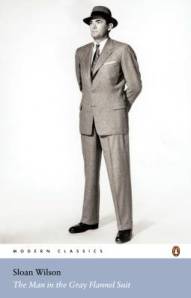“The longer I do this the less I know.”
small business help That was my wife, Lisa’s, former career-counseling partner, Colleen Convey, talking to people at a large Minneapolis company years ago about finding work that fits you, not fitting into work. Then Colleen gave them, humbly, what she’d learned in her decades of counseling, which her years and wisdom had shaped into something simple, clear and deep.
One of Colleen’s and Lisa’s measures of job fit is — when was the last occasion where you lost track of time because you were so engaged by what you were doing? If you can find work that connects with one of  those experiences (no, Austin, you can’t make a living doing that) you’ll have work that fits and fulfills.
those experiences (no, Austin, you can’t make a living doing that) you’ll have work that fits and fulfills.
Ten years ago Colleen’s and Lisa’s advice and support helped me leave, with manageable fear and trembling, a global PR firm to start my own little business. April 1, 2001 I went on my own, an April fool. Ten years later, I still haven’t had to get a real job and I’m still losing track of time when engaged face-to-face with my clients. The longer I do this the less I know — but I’ve become pretty clear about what I do know.
Life is short, meetings are long, presentations are mostly dreadful, most interview subjects can’t spit out in plain English why anybody might care about or benefit from what they do — so anyone who can talk with clarity and passion and examples about stuff that matters to real people is an extraordinary and compelling communicator. After a dozen years as a journalist and a dozen in PR and decades of college teaching, I have focused on training people to be clear and compelling communicators. Not by giving them a formula, but by listening to them and watching them and dragging out, through all the layers of organizational and educational and professional detritus, their own personality and passion. I help people talk about stuff that excites them or moves them — and I get paid for it. For ten years now. Good gig
It’s scary, a little, being out on your own. Most independents I know, like me, worry that the phone will stop ringing. Colleen told me that the first year on your own you worry all the time about not getting work, the second year you think the first year was a fluke, and by the third year you think this might actually work. Ten years in, I’ve embraced worry as an old friend who just croaks in the corner. I miss a good health-care plan, I miss colleagues from the newspapers and colleges and Shandwick, but god I love making an independent living from something I’m good at, saying yes or no when I want to, and now in my dotage not pretending I know more than I do.
A huge thanks is due to the people who helped me develop the skills I’ve traded on for ten years — Dennis McGrath, Scott Meyer, Mary Jeffries, Dave Mona, Sara Gavin, Dave Kuhn, Betsy Buckley, Kari Bjorhus, Steve Conway, Mary Milla, Walt Parker and so many more from the Mona Meyer McGrath & Gavin Shandwick years. And to Lisa, who encouraged me to jump with no net. And to mein guter freund Jorg Pierach, with whom I jumped in 2001 and who, like me, has withstood two economic collapses and who, unlike me, has built a gorgeous and successful agency of lively cool professionals — FastHorse. Jorg supported and supports me, with drinks and an office and unquenchable good spirit. And to Daniel Pitlik, who’s been at this for years longer than I have and is an example and mensch and sweet human being from whom I have stolen endless ideas and approaches. And to Tony Carideo, a careful and caring businessman/journalist with a philosopher’s heart and degree who’s held my hand the whole way — and whose basement is promised as Lisa’s and my retirement home.
And to my clients — who make me feel part of their teams — huge huge thanks. These are my colleagues and friends — good humans at Medtronic, Best Buy,Thomson Reuters, UPS, Amway, Cargill, Doug Kelley, GCI Atlanta the most frequent, but all of you people I light up when I see as I drag in my camera bag for another gig. The biographer Charles Neider had a formula for whom he chose as a subject for a book — could he take a cross-country train trip with that person and not want to jump the tracks mid-journey? All of my clients I’d climb on a train with — at the bar-car end of course. Some of my clients are former Shandwick colleagues who’ve moved on and kept my number, some former Shandwick clients, some former students, and all have referred me to others, which keeps me out of the bread lines.
In ten years my little business has moved its global headquarters from Eden Prairie to South Minneapolis and now to north of Tampa, where my office is a screen porch looking out on the egret fishing in the oyster bar pictured above. Huge thanks to my Minneapolis clients who keep calling on me even though I’m no longer just a half-hour away. Here near the Gulf of Mexico I’ve learned to distinguish the sharp beak-splash of a kingfisher diving into the tidal pond in our backyard from the flop-splash of fish jumping, and to recognize the twee-twee call of an osprey before I see its speckled wings and striped tail. These are important work skills, I think.
Technology has changed in my ten years. I travel now with three video cameras (plans A, B & C — you can’t waste executives’ time and look like a fool because of equipment failures or lost luggage), the most recent a flipcam. I used to drag to sessions a bag of VHS tapes of interview and speech examples until Sue Busch at Best Buy suggested with good humor that this was one step above cave paintings, so then I switched to examples on DVD. Now it’s YouTube and Ted.com — when a client at UPS a week or so ago said he liked a local preacher’s and Tom Friedman’s speaking styles, we instantly pulled them up on YouTube on my iPhone and analyzed what made them compelling. (Even more important — I’m about to watch the Twins opener on my iPad out on the porch — is this a great country or what?)
Have I changed in ten years? I’m more willing to say no to work I’m not good at, don’t like or don’t know enough to do. Journalism training and natural arrogance have always made me comfortable challenging people, but now I’m even more willing to look at an executive and say, with I hope a blend of compassion and two-by-four, that people will rush for the exits if you talk like that. And I’m more sure I can help the person be more engaging and compelling — partly because the bar is so low in most organizations. I worry a little about not staying current, and I never pretend to be a social media guru, leaving that to Jorg and blogbuddies Mike Keliher and Jon Austin. But the core of communication, I think, is still clarity and passion and zip, no matter the medium.
Personally I remain a manic blend of daily childish optimism and long-term black-hole pessimism, but here in Florida surrounded by birdmusic and the breathing tides and clouds of the Gulf I wallow less in the daily examples of entropy. Once you know the principle that trains crash, Thoreau wrote, you don’t need to know every instance of a train crashing. So I put down the paper or the hand-held and watch a heron alight with delicate wingbeats on the cedar tree across the channel.
Enough. Thanks to all who’ve been part of this journey. And please keep calling — I need the work. And the time face-to-face with clients still flies by.
— Bruce Benidt















